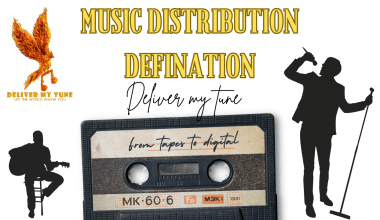Have you ever wondered how your favorite music reaches your playlist? Behind the scenes, record label distribution companies play a huge role in ensuring that songs, albums, and music videos are available worldwide. These companies act as a bridge between artists, record labels, and listeners, making sure that the music is heard and enjoyed by millions.
Understanding how these companies work and why they matter can help artists, managers, and even fans appreciate the complexity of the music industry. Let’s dive into the world of record label distribution companies and unravel their role in shaping the music landscape.
What Are Record Label Distribution Companies?
At their core, record label distribution companies are businesses that specialize in getting music from the creators (artists and labels) to the consumers (listeners). This process involves working with various platforms, such as streaming services, physical retail stores, and even radio stations. Without these distribution companies, music wouldn’t have the same global reach it enjoys today.
Traditionally, distribution meant shipping physical records, tapes, or CDs to stores. However, in today’s digital era, it’s more about ensuring music is available on streaming platforms like Spotify, Apple Music, and YouTube.
Why Are Record Label Distribution Companies Important?
Music distribution companies are crucial for several reasons:
- Global Reach: They help artists get their music into international markets.
- Professional Expertise: They handle complex tasks like licensing, copyright management, and metadata optimization.
- Partnerships: Many distribution companies have strong relationships with streaming services and retailers, giving artists better visibility.
- Financial Support: Some companies offer advances to artists, helping them fund their projects.
For independent artists and small labels, these companies can be game-changers, offering tools and services that would otherwise be hard to manage alone.
How Do Record Label Distribution Companies Work?
Let’s break it down step by step:
- Submission: Artists or labels submit their music, along with necessary metadata like track titles, release dates, and album art.
- Processing: The distribution company ensures the music meets technical and legal standards.
- Delivery: The company sends the music to digital platforms, physical stores, or both.
- Promotion (Optional): Some distributors offer marketing services to help music reach a wider audience.
- Royalties: Once the music starts generating income, the distributor collects and pays out royalties to the artist or label.
Types of Record Label Distribution Companies
Not all distribution companies are the same. Here are the main types:
- Major Distributors: These are affiliated with major record labels like Sony, Universal, or Warner. They primarily serve established artists.
- Independent Distributors: These cater to indie artists and small labels. Examples include CD Baby, TuneCore, and DistroKid.
- Specialized Distributors: These focus on niche markets, such as vinyl collectors or specific genres.
Choosing the Right Distribution Company
When selecting a distribution partner, artists and labels should consider the following factors:
- Fee Structure: Some companies charge upfront fees, while others take a percentage of royalties.
- Services Offered: Does the company provide promotional support, analytics, or physical distribution?
- Reputation: Look for reviews, testimonials, and case studies.
- Compatibility: Ensure the distributor supports your genre, style, and career goals.
Challenges in Music Distribution
While distribution companies simplify many processes, there are challenges:
- Competition: With millions of songs released every day, standing out is hard.
- Royalties: Tracking and collecting royalties across platforms can be complex.
- Piracy: Illegal downloads and streaming still pose a threat.
Future of Record Label Distribution Companies
As technology evolves, the role of distribution companies will likely expand. Innovations like blockchain could revolutionize royalty tracking, while AI might help identify emerging trends. What remains clear is that these companies will continue to be a vital part of the music ecosystem.
Conclusion
Record label distribution companies are the unsung heroes of the music industry. They ensure that artists can share their music with the world while navigating the complex web of licensing, royalties, and promotion. Whether you’re an aspiring artist or just a curious listener, understanding their role helps you appreciate the journey of a song from the studio to your ears.
If you’re an artist, now is the time to explore your options, choose the right distribution partner, and take your music career to the next level.
For further reading, explore these related articles:
For additional resources on music marketing and distribution, visit DMT Records Private Limited.






